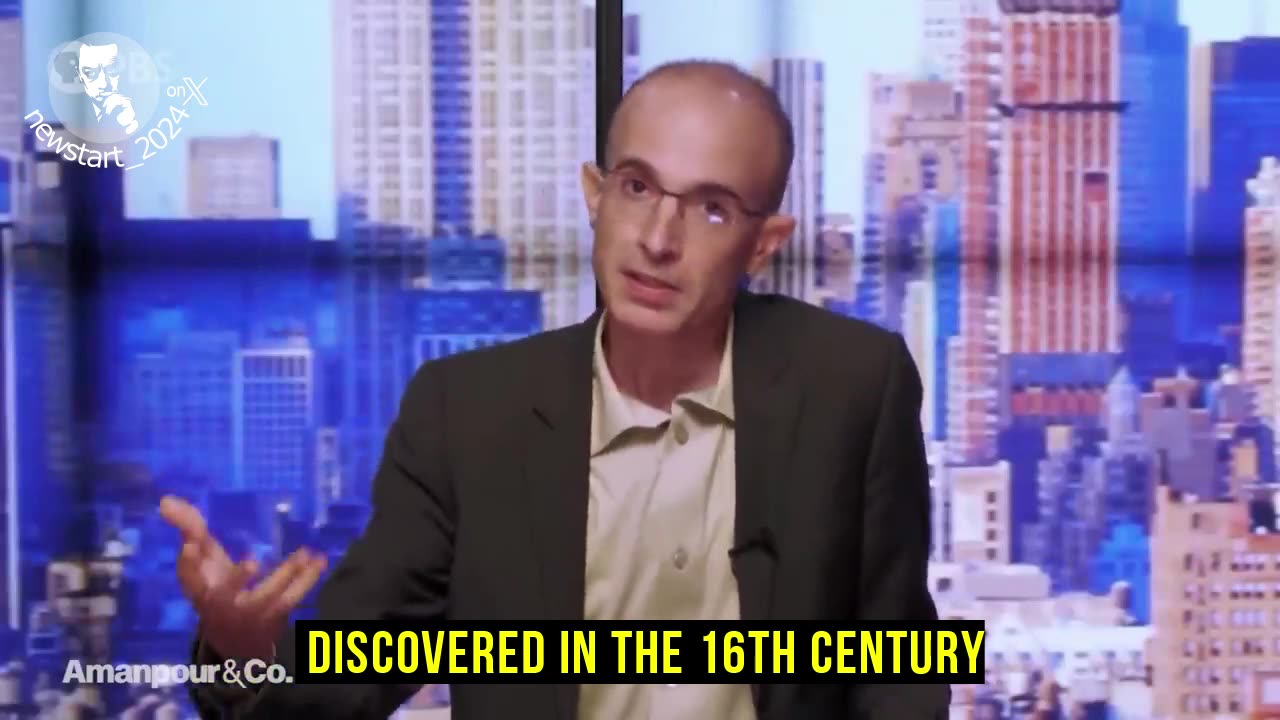Premium Only Content

Yuval Noah Harari about fake news and conspiracy theories
"When you make the production of information easier, what you get is not necessarily facts. What you get is a lot of junk information, a lot of fake news and conspiracy theories and things like that. If you want the truth, it's not enough to have a technology to produce information. You need institutions, costly institutions, that make the effort to separate reliable information, which is rare kind of information, from the flood of unreliable information. And in early modern Europe, it took 200 years to create such institutions like newspapers, like scientific associations. You know, in scientific journals, they don't run after user engagement. The algorithms today on social media are exactly like the first wave of publishers in the 15th and 16th century. In the 16th century, they also ran after user engagement. We want user engagement. And they discovered in the 16th century that if you produce a book by Copernicus, with all these mathematical calculations about the movement of the planets, nobody buys it. It's boring. But if you publish a witch hunting manual that tells you that there is a worldwide conspiracy of witches led by Satan, and they have orgies and cannibalism and child sacrifice, and they try to take over the world, and some of your neighbors in the village, they are part of this conspiracy. And these are a few signs how you can identify these witches in your town, in your village and kill them, these were the big best sellers. And this led to this craze of the witch hunts which was not a medieval phenomenon. In medieval Europe, witch hunting was a very rare, I mean, people didn't care so much about witches in medieval Europe. The witch hunts were a modern phenomenon ignited in part by the print revolution and by this flood of witch hunting manuals, which were good for user engagement and very bad for everything else."
Source: Amanpour and Company (YouTube)
-
 LIVE
LIVE
GritsGG
10 hours agoWin Streaking! Most Wins 3485+ 🧠
74 watching -
 1:14:52
1:14:52
TheCrucible
2 hours agoThe Extravaganza! EP: 29 (8/28/25)
69.5K5 -

Kim Iversen
3 hours agoTrans. Russian. Anti-Israel. Anti-Trump. Are You Buying This Story?
18.1K32 -
 1:51:08
1:51:08
Redacted News
2 hours agoEMERGENCY! BILL GATES CULT MEMBERS FOUND PLANTED INSIDE MULTIPLE FEDERAL AGENCIES, RFK FURIOUS
113K67 -
 31:02
31:02
Kimberly Guilfoyle
3 hours agoFull Breaking News Coverage: Live with John Nantz & Steve Moore | Ep250
20.4K7 -
 1:15:19
1:15:19
vivafrei
4 hours agoShameless Politicization of Tragedy! Susan Monarez is OUT! Pritzker is an IDIOT! & MORE!
118K46 -
 9:52
9:52
Tundra Tactical
2 hours agoCracker Meme Review On Tundra Meme Review!!
3.52K -
 LIVE
LIVE
Wayne Allyn Root | WAR Zone
5 hours agoWAR Zone LIVE | 28 AUGUST 2025
95 watching -
 LIVE
LIVE
LFA TV
11 hours agoLFA TV ALL DAY STREAM - THURSDAY 8/28/25
1,035 watching -
 DVR
DVR
freecastle
4 hours agoTAKE UP YOUR CROSS- CREATED IN HIS IMAGE
14.7K3